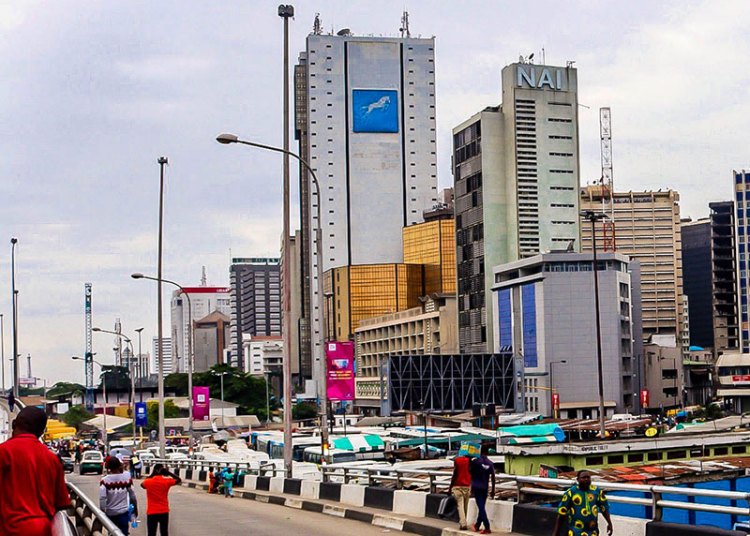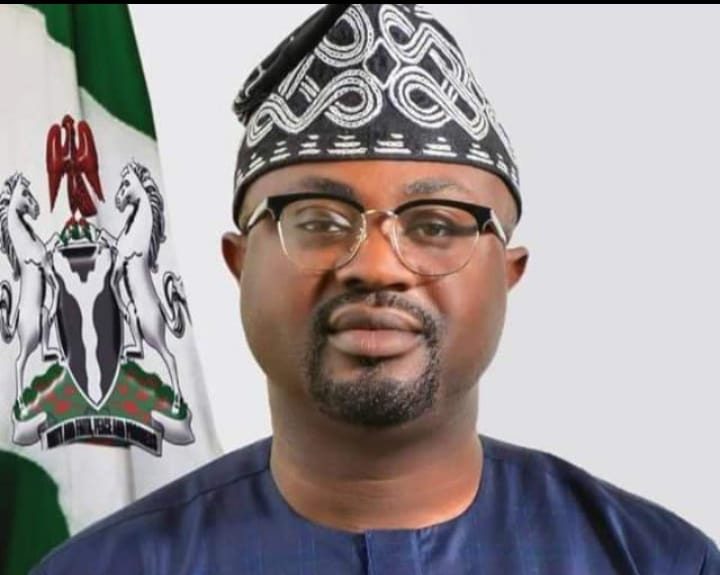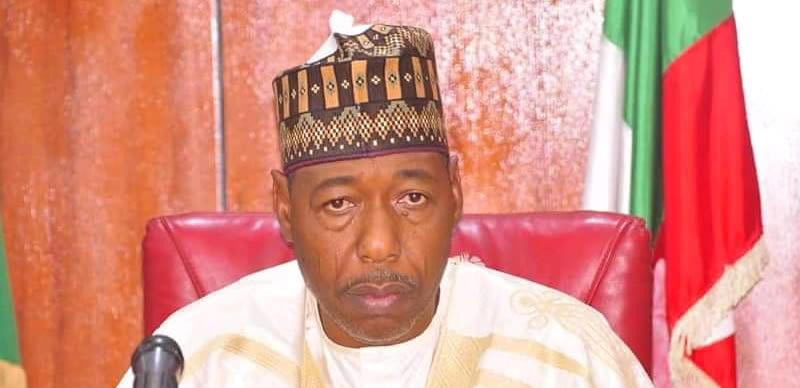Headlines
With Worsening Power Supply and Rising Price of Diesel, Nigeria’s Organised Private Sector Foresees Tough Times

By Derrick Bangura
The Organised Private Sector, OPS, which includes the Nigerian Association of Chambers of Commerce, Industry, Mines and Agriculture (NACCIMA), the Lagos Chamber of Commerce and Industry (LCCI), and the Manufacturers Association of Nigeria (MAN), has stated that the current energy crises afflicting the Nigerian economy will exacerbate the woes of the country’s business operators.
This comes on the heels of reports that Nigeria’s national power grid experienced another outage on Tuesday, just 24 hours after a similar system failure resulted in a nationwide blackout.
However, NACCIMA and LCCI also pointed out that the development would create a difficult environment for businesses and Nigerians in the form of accelerated inflationary pressure, high cost of production, retrenchment of workers and worsened poverty rate.
The representatives of private sector operators however said they did not foresee economic activities in the country coming to a standstill due to the energy crises which has been manifesting in the form of poor supply of electricity, high cost of diesel, scarcity of petrol and shortage of aviation fuel that saw airline operators announcing that they would shut down flight operations from March 17.
The National President of NACCIMA, Mr. John C. Udeagbala, told THISDAY on Tuesday that although the association appreciated that the current energy crises would have far-reaching implications for the Nigerian economy as the use of the products were entrenched in the production and transportation processes of both the public and private sectors, yet, “we do not expect that the shutdown of flights over the scarcity of aviation fuel and the issues of the national grid to bring the economy to a standstill in the short or medium term, rather, with rising prices, we expect rising inflation, a further erosion of the purchasing power of the population, and redistribution of wealth that plunges more of the population below the poverty line.
“This is the likely result of the private sector seeking to adapt and adjust to the new realities.”
He added that NACCIMA, “is extremely concerned about rising prices of petroleum products; particularly diesel and aviation fuel; a hike which is very possibly an effect of the ongoing conflict in Europe and made worse by a lack of domestic production to meet demand despite the existence of refineries.”
The NACCIMA boss also reiterated his call for incisive policy implementation within the energy sector, “to limit our economy’s exposure to global shocks and serve as a springboard for sustained economic growth.”
Speaking in the same vein, President of LCCI, Dr. Michael Olawale-Cole said the escalating price of diesel, scarcity of petrol and aviation fuel as well as the collapse in national grid would definitely have implications for production downtimes, exasperate inflationary pressure, and eventually cause loss of jobs if they were not curtailed on time.
Olawale-Cole said: “With oil prices above $110 per barrel, this has not translated into profits for Nigeria for the reason of equally increasing fuel subsidy payments. The price of diesel, mostly used in industrial production and other heavy-duty operations has risen above N720 per litre.
“This definitely has implications for production downtimes, rise in prices, and eventually loss of jobs if not curtailed on time. The most sustainable way to go is to increase our local refining capacity and save the huge spending of our foreign exchange on importation of fuel.”
He added: “We are passing through a phase in our lives as a nation and I am very confident that we will survive it. All we can do is to keep advocating and keep discussing for solutions. The idea is for us to talk and give government alternative ideas as to what we feel it should do.
“The fact that subsidy payment increased by 447 per cent in seven years when capital expenditure remained under funded signified that opportunity costs, which by the way, is the real cost of the petrol subsidy payment, is very expensive.
“In fact, the resources that would have been used to provide standard road infrastructure, quality health care system, quality education and social safety net have gone into subsidising petrol consumption. It is also stifling private investments as uncertainty about price regulations discourage serious investment.”
The Manufacturers Association of Nigeria (MAN), has also warned that Nigerian manufacturers are set to encounter difficulties meeting production of goods as the cost of diesel hits N730 per litre.
This was made known in a statement by Mr Lanre Popoola, Chairman, Manufacturers Association of Nigeria (MAN), Oyo, Osun, Ekiti and Ondo on Sunday, according to the News Agency of Nigeria.
He also urged for the government’s intervention through palliatives to enable manufacturers to handle the costs.
Popoola said, the current costs of diesel has made it difficult to ensure production at this time, as diesel has gone up to N720 and N730 per litre.
Headlines
Noble Ladies Champion Women’s Financial Independence at Grand Inauguration in Abuja

Women from diverse backgrounds across Nigeria and beyond gathered at the Art and Culture Auditorium, Abuja, for the inauguration and convention of the Noble Ladies Association. The event, led by the association’s Founder and “visionary and polished Queen Mother,” Mrs. Margaret Chigozie Mkpuma, was a colourful display of feminine elegance, empowerment, and ambition.
The highly anticipated gathering, attended by over 700 members and counting, reflected the association’s mission to help women realise their potential while shifting mindsets away from dependency and over-glamorization of the ‘white collar job.’ According to the group, progress can be better achieved through innovation and creativity. “When a woman is able to earn and blossom on her own she has no reason to look at herself as a second fiddle,” the association stated.
One of the association’s standout initiatives is its women-only investment platform, which currently offers a minimum entry of ₦100,000 with a return of ₦130,000 over 30 days—an interest rate of 30 percent. Some members invest as much as ₦1 million, enjoying the same return rate. Mrs. Mkpuma explained that the scheme focuses on women because “women bear the greater brunt of poverty” and the platform seeks “to offer equity in the absence of economic equality.”
Education is also central to the Noble Ladies’ mission, regardless of age. Their mantra, “start again from where you stopped,” encourages women to return to school or upgrade their skills at any stage in life. The association believes that financial stability is vital in protecting women from cultural practices that dispossess widows of their late husbands’ assets, while also enabling them to raise morally and socially grounded families.
Founded on the vision of enhancing women’s skills and achieving financial stability, the association rests on a value system that discourages pity and promotes purpose. “You have a purpose and you build on that purpose to achieve great potentials and emancipation,” Mrs. Mkpuma said.
A criminologist by training and entrepreneur by practice, she cautions against idleness while waiting for formal employment. “There are billions in the informal and non-formal sectors waiting to be made,” she said, rejecting the “new normal of begging” and urging people to “be more introspective to find their purpose in life and hold on to it.”
Mrs. Mkpuma’s management style keeps members actively engaged, focusing on vocational skills and training to prepare them for competitive markets. She is exploring “innovative integration of uncommon technologies” and is already in talks with international franchises to invest in Nigeria, with Noble Ladies as first beneficiaries.
The association’s core values include mutual respect, innovation, forward-thinking, equal opportunity, and financial emancipation. With plans underway to establish a secretariat in the heart of Abuja, the group aims to expand its impact.
The event drew high-profile guests, including former Inspector General of Police, Mike Okiro, and a host of VIPs, marking a significant milestone in the association’s drive for women’s empowerment.
Headlines
NEPZA, FCT agree to create world-class FTZ environment

The Nigeria Export Processing Zones Authority (NEPZA) has stepped in to resolve the dispute between the Federal Capital Territory Administration and the Abuja Technology Village (ATV), a licensed Free Trade Zone, over the potential revocation of the zone’s land title.
Dr. Olufemi Ogunyemi, the Managing Director of NEPZA, urged ATV operators and investors to withdraw the lawsuit filed against the FCT administration immediately to facilitate a roundtable negotiation.
Dr. Ogunyemi delivered the charge during a courtesy visit to the Minister of the Federal Capital Territory, Barrister Nyesom Wike, on Thursday in Abuja.
You will recall that the ATV operators responded to the revocation notice issued by the FCT administration with a lawsuit.
Dr. Ogunyemi stated that the continued support for the growth of the Free Trade Zones Scheme would benefit the nation’s economy and the FCT’s development, emphasizing that the FCT administration recognized the scheme’s potential to accelerate industrialisation.
Dr. Ogunyemi, also the Chief Executive Officer of NEPZA, expressed his delight at the steps taken by the FCT minister to expand the economic frontier of the FCT through the proposed Abuja City Walk (ACW) project.
Dr. Ogunyemi further explained that the Authority was preparing to assess all the 63 licensed Free Trade Zones across the country with the view to vetting their functionality and contributions to the nation’s Foreign Direct Investment and export drives.
“I have come to discuss with His Excellency, the Minister of the Federal Capital Territory on the importance of supporting the ATV to succeed while also promoting the development of the Abuja City Walk project. We must work together to achieve this for the good of our nation,” he said.
On his part, the FCT Minister reiterated his unflinching determination to work towards President Bola Ahmed Tinubu’s Renewed Hope Agenda by bringing FDI to the FCT.
“We must fulfil Mr. President’s promises regarding industrialization, trade, and investment. In this context, the FCT will collaborate with NEPZA to review the future of ATV, a zone that was sponsored and supported by the FCT administration,” Wike said.
Barrister Wike also said that efforts were underway to fast-track the industrialisation process of the territory with the construction of the Abuja City Walk.
The minister further said the Abuja City Walk project was planned to cover over 200 hectares in the Abuja Technology Village corridor along Airport Road.
According to him, the business ecosystem aimed to create a lively, mixed-use urban center with residential, commercial, retail, hospitality, medical, and institutional facilities.
He added that the ACW would turn out to be a high-definition and world-class project that would give this administration’s Renewed Hope Agenda true meaning in the North-Central Region of the country.
Barrister Wike also indicated his continued pursuit of land and property owners who failed to fulfil their obligations to the FCT in his determination to develop the territory.
Headlines
Benue IDPs block highway, demand return to ancestral homes

Vehicular movement along the Yelwata axis of the Benue–Nasarawa highway was brought to a standstill on Wednesday as Internally Displaced Persons, IDPs, staged a protest, demanding immediate return to their ancestral homes.
The protesters, believed to be victims of persistent attacks by suspected herdsmen, blocked both lanes of the busy highway for several hours, chanting “We want to go back home”.
The protest caused disruption, leaving hundreds of motorists and passengers stranded.
Eyewitnesses said the displaced persons, many of whom have spent years in overcrowded IDP camps, are expressing deep frustration over the government’s delay in restoring security to their communities.
“We have suffered enough. We want to return to our homes and farms,” one of the protesters told reporters at the scene.
Security personnel were reportedly deployed to monitor the situation and prevent any escalation, though tensions remained high as of press time.
Efforts to reach the Benue State Emergency Management Agency, SEMA, and other relevant authorities for comment were unsuccessful.
-

 Headlines4 years ago
Headlines4 years agoFacebook, Instagram Temporarily Allow Posts on Ukraine War Calling for Violence Against Invading Russians or Putin’s Death
-

 Headlines4 years ago
Headlines4 years agoNigeria, Other West African Countries Facing Worst Food Crisis in 10 Years, Aid Groups Say
-

 Foreign4 years ago
Foreign4 years agoNew York Consulate installs machines for 10-year passport
-

 News1 year ago
News1 year agoZero Trust Architecture in a Remote World: Securing the New Normal
-

 Entertainment3 years ago
Entertainment3 years agoPhyna emerges winner of Big Brother Naija Season 7
-

 Headlines2 years ago
Headlines2 years agoNigeria Customs modernisation project to check extortion of traders
-

 Entertainment2 years ago
Entertainment2 years agoMovie download platform, Netnaija, announces closure
-

 Economy2 years ago
Economy2 years agoWe generated N30.2 bn revenue in three months – Kano NCS Comptroller
















